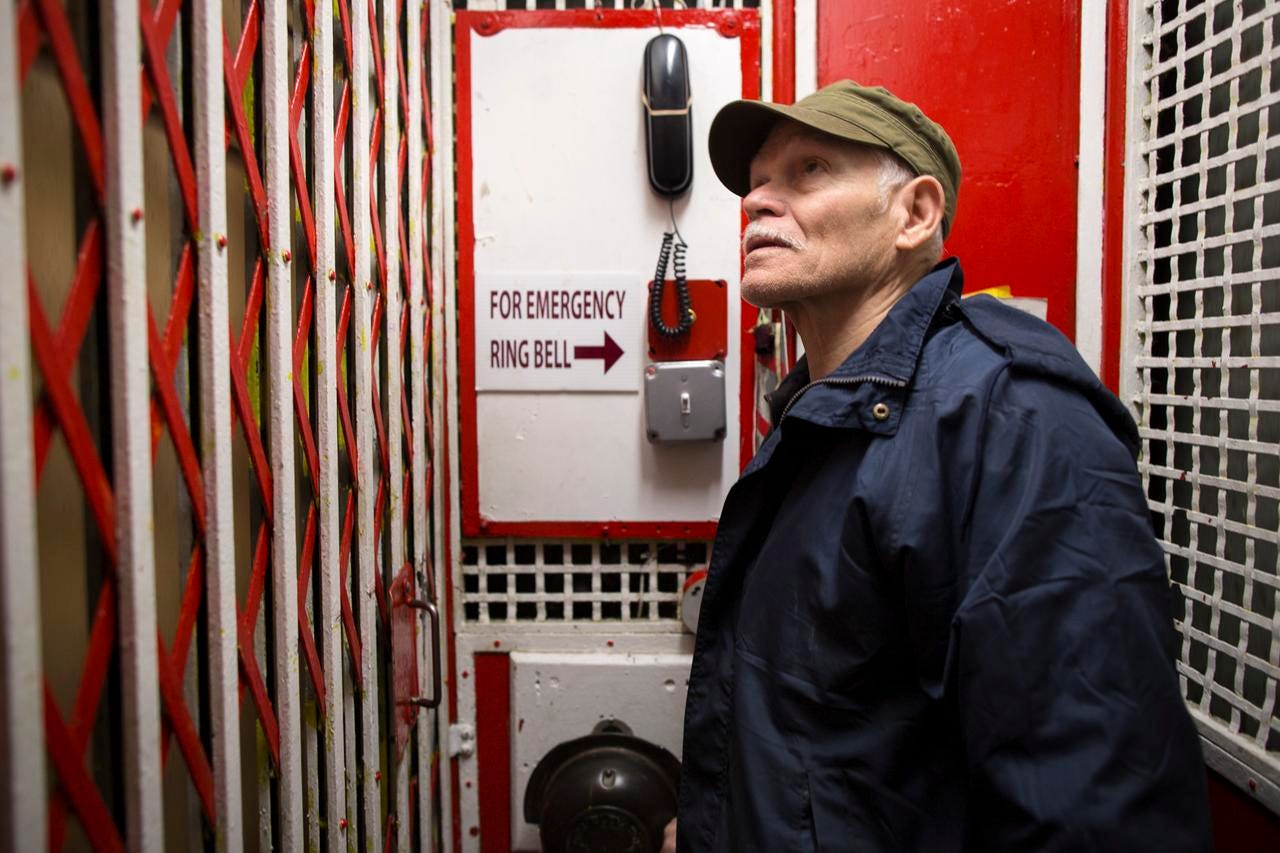Love in an Elevator
On the day of his retirement, one of Manhattan’s last remaining manual elevator operators looks back on thirty-three years of colorful ups and downs.
In the basement of 6 West 28th Street in Manhattan, there is a small office with low concrete ceilings and a wall lined by 1970s mannequins. The main entrance, via a manual elevator, is flanked on either side by two smaller interior rooms. To the right is the motor room, with its oil-stained pulley system, and to the left, an interior closet with a faded poster of Jennifer Lopez from 1999 hanging haphazardly on the wall. Finally, sitting at a glass-top table in the center of the main room, sunglasses perched atop his hunter-green cap, is Angel, the building's superintendent and elevator operator. It is a bitterly cold morning in late February and Angel is huddled next to his ineffectual space heater. The boiler is broken and his office is the coldest room in the building.
Keep reading with a 7-day free trial
Subscribe to Narratively to keep reading this post and get 7 days of free access to the full post archives.




